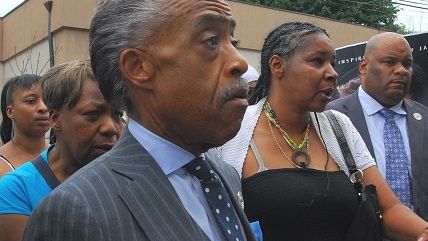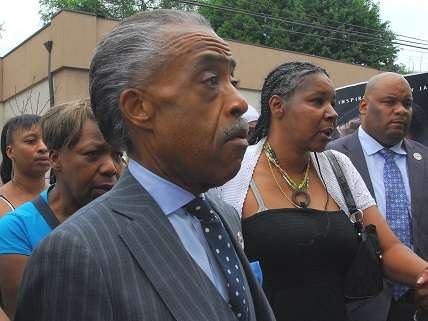Steve Chapman: What About 'Black-on-Black' Crime?
Raising "black-on-black crime" right now is not a sincere attempt to improve the lot of African-Americans.


The shooting of Michael Brown and its turbulent aftermath have renewed an old question: Why does the black community raise a ruckus when a white person kills a black person, which is rare, but not when a black person kills a black person, which is far less rare?
It's a complaint perennially lodged by conservative commentators. Jason Riley, an African-American editorial writer for The Wall Street Journal, criticized the Rev. Al Sharpton's appearance in Ferguson, Missouri. "The problem is not cops shooting blacks but blacks shooting each other," he asserted. Yet "so-called black leaders are much more interested in making excuses for this behavior than they are in denouncing it unequivocally."
Their charges have more than a whiff of condescension—implying that most blacks are unable to discern the greatest ills afflicting them. But black leaders can walk and chew gum at the same time. They can work to curb violence by blacks against blacks and also work to prevent the killing of unarmed African-Americans by police and vigilantes. Both are deeply undesirable.


Show Comments (0)